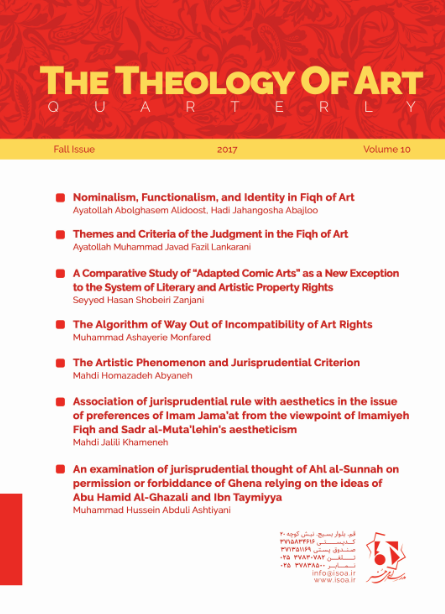An examination of jurisprudential thought of Ahl al-Sunnah on permission or forbiddance of ghena relying on the ideas of Abu Hamid Al-Ghazali and Ibn Taymiyya
Document Type : Original Article
Author
Graduated from Mashhad and Qom Seminary, PhD Student of Wisdom of Religious Art at University of Religions and Denominations in Qom, mh.ashtiyanei@gmail.com
Abstract
The attitude toward music and ghena, in Islamic Shari’a, has always been an important and controversial issue. Therefore, the current study aims to examine the ideas of two of the influential jurisprudents of Ahl al-Sunnah on this matter. Herein, the views of Abu Hamid Al-Ghazali and Ibn Taymiyya on the issue of “hearing ghena” are addressed. The final conclusion of their religious research was shown to be completely different. In Ghazali’s view, ghena is permitted (mubah) based on validity evidence which may imply various jurisprudential rules based on corruption or expedience. Ibn Taymiyya al-Hanbali, however, like many Sunni scholars, believes in hurmat (prohibition) and considers those who believe in “permission of music” as heretic. The present study tries to show that different views of these two thinkers, though they both refer to book and tradition, imply a different way of understanding and perception of religion as well as ghena.
Keywords
 Theology of Art
Theology of Art
